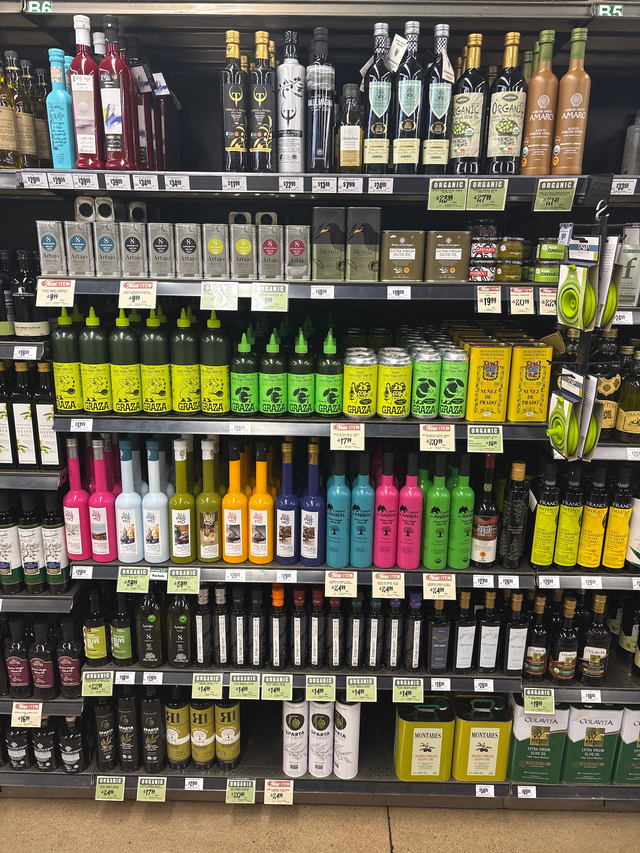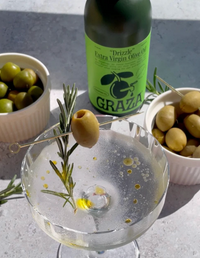
Olive Oil vs Sunflower Oil: Your Questions Answered
Sunflower oil and olive oil may both sit in your pantry, but they bring very different things to the table—literally. Whether you're wondering which is healthier, tastier, or better for cooking, we’ve got the answers to help you choose the right oil for the job!
Olive oil and sunflower oil are two of the most commonly used cooking oils, but they're far from interchangeable. One is a staple of the Mediterranean diet, packed with antioxidants and a rich history. The other is a neutral, high-smoke-point often found in frying pans and processed snacks.
So which one should you be using? Let's break it down.
Where Do These Oils Come From?
Olive oil comes from—you guessed it—olives! The process is pretty straightforward: olives are crushed, and their liquid gold is extracted. If you're getting extra virgin olive oil (EVOO), that means it's mechanically pressed with no chemicals or heat involved, keeping all the good olivey stuff intact!
Sunflower oil is extracted from sunflower seeds, but here's where things get tricky: there are different types. There is regular sunflower oil which is mostly polyunsaturated fats and there is high-oleic sunflower oil which has more monounsaturated fats.
Which One Is Healthier?
Olive oil is packed with heart-healthy monounsaturated fats, polyphenols, and antioxidants. Studies link it to reduced inflammation, better heart health, and even longevity.
Sunflower oil contains vitamin E, but if you're using the regular variety, it's mostly omega-6s, which can contribute to inflammation if over-consumed.
What About Smoke Point?
The smoke point debate—one of the biggest myths in the cooking oil world.
Extra Virgin Olive Oil: ~410F
Refined Olive Oil: 400-470F
Regular Sunflower Oil: 440-450F
Sunflower oil may have a higher smoke point, but that's not the full story. Olive oil is more chemically stable due its antioxidants, meaning it doesn't break down into harmful compounds as quickly as you'd think—even at high temps.
What's the Difference in Taste?
Depending on the varietal olive oil can have bold, rich, complex taste. A late harvest EVOO like Sizzle will have fruity, mellow tasting notes; while an early harvest EVOO like Drizzle contains grassy and peppery tasting notes. EVOO adds depth to dishes from salads to roasts!
Sunflower oil has a neutral and mild taste profile, almost flavorless. It doesn't interfere with other ingredients in a dish and works well when you don't want any oil flavor to stand out.
The Bottom Line
For health, versatility, and flavor profile we say EVOO all the way! If you want your oil to elevate your cooking game and boost the flavor on any dish, olive oil wins every time.

















